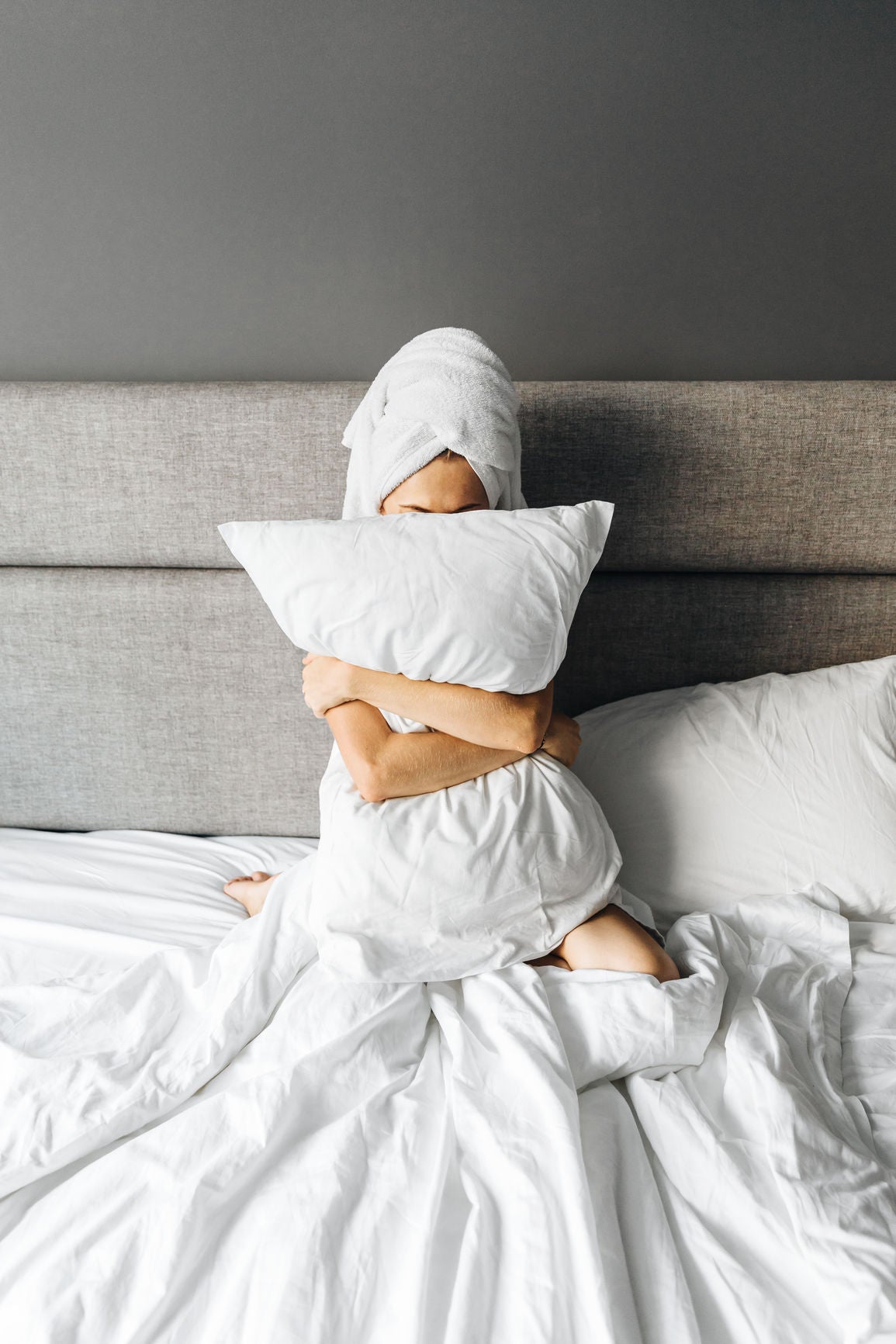Key Takeaways
- PMS is often used as a stand-in for mood swings that occur before menstruation.
- But premenstrual syndrome can manifest itself in far more than just mood swings.
- Symptoms reported by those affected include headaches, abdominal pain, and water retention.
Pain and depressive moods before menstruation: Premenstrual Syndrome, or PMS for short, refers to the regular occurrence of physical and psychological symptoms between ovulation and menstruation.
About 30 percent of all women* experience these kinds of symptoms. Around five percent regularly struggle with severe forms.
Typical symptoms of PMS include...
Headaches,
abdominal pain,
tension in the breasts,
sleep disturbances,
water retention,
mood swings up to and including aggression or melancholy.
The cause of PMS is still unclear
PMS has not yet been fully researched. At first, science assumed that a hormonal imbalance of progesterone and estrogen was responsible for women feeling unwell during this phase of the cycle.
Newer studies suggest an interaction between the hormonal system and the nervous system. Serotonin in particular may play a decisive role here. What is certain is that a fundamentally healthy diet and sufficient exercise can improve symptoms in the long term.
PMDD – a form of PMS
One subtype of PMS is Premenstrual Dysphoric Disorder, or PMDD. This is when psychological symptoms such as irritability, restlessness, sadness, depression, and mood swings are especially pronounced.
What helps with PMS...
Depending on which symptoms occur, different approaches and remedies may help. In general, it is beneficial to maintain a healthy lifestyle and avoid too much sugar, white flour, fat, alcohol, and nicotine.
Some women* report positive changes from dietary supplements such as calcium, magnesium, and vitamin B6, as well as from herbal remedies like lady’s mantle tea, chasteberry, or black cohosh. It is important to be well-informed about their effects and possible side effects.
Relaxation techniques such as autogenic training or hormone yoga exercises help both body and mind. Nettle tea, which has a draining effect, can relieve bloating. Heat and rest have proven helpful against pain.
Of course, mild painkillers may also be taken if symptoms are strong. Always pay attention to possible side effects and discuss dosage with a doctor. If symptoms, particularly psychological ones, are very severe, a comprehensive treatment plan should be developed with a physician.

